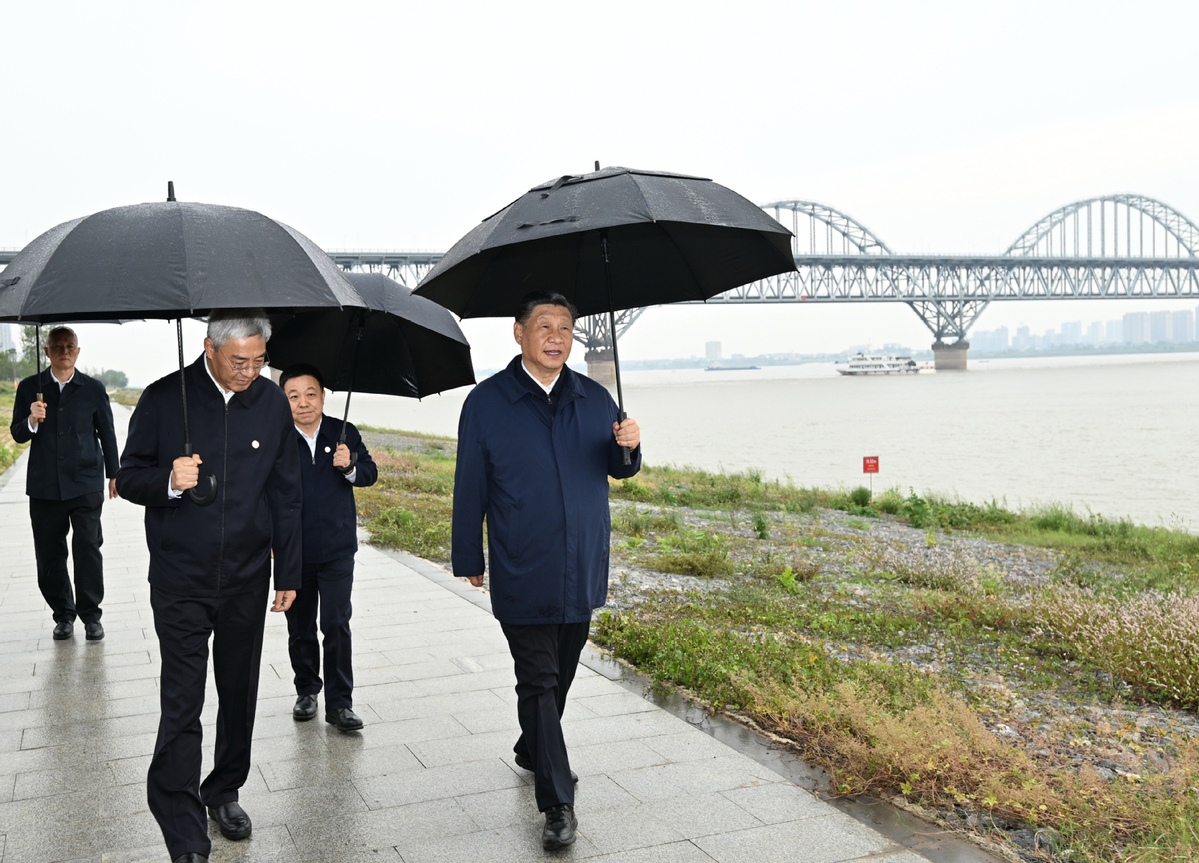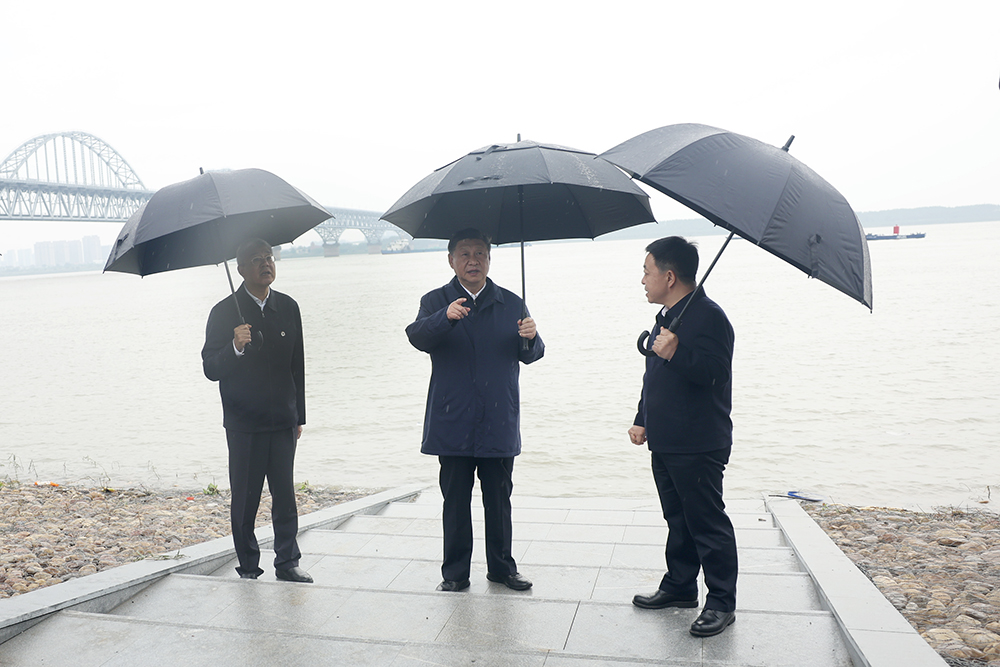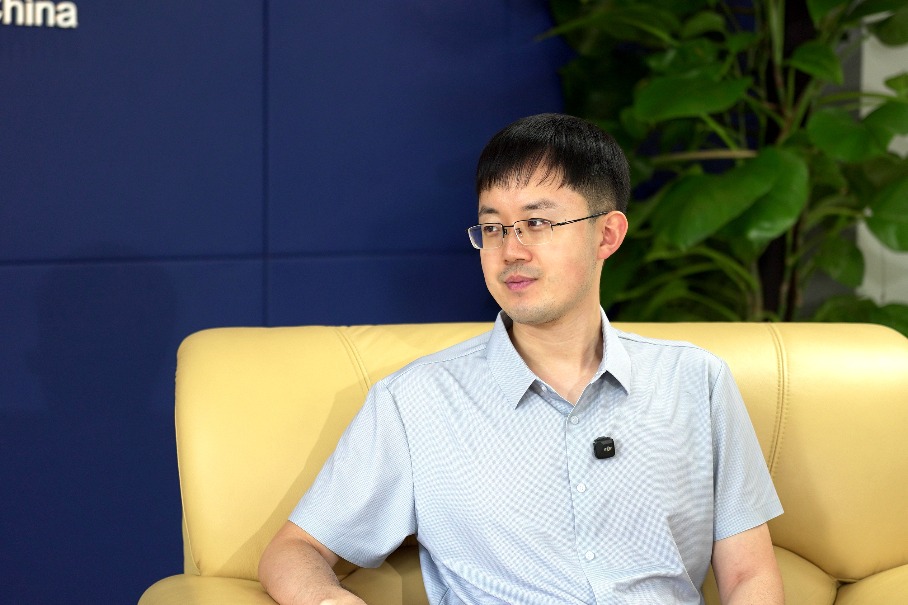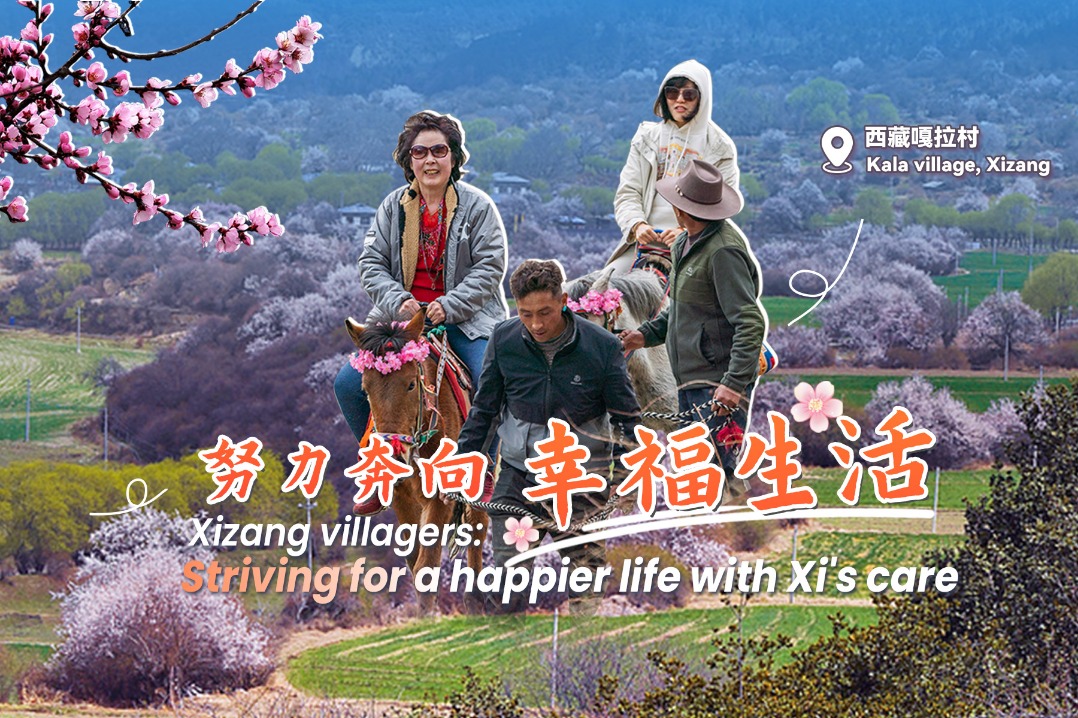Xi Focus: Decoding Xi Jinping Thought on Culture through his inspection visit to Jiangxi


BEIJING -- During a recent inspection trip to East China's Jiangxi province, President Xi Jinping visited the Yangtze River National Cultural Park, a historical and cultural block, and an ancient village.
The three places all bear notable hallmarks of Chinese culture. The visit came after Xi Jinping Thought on Culture was formally put forward at a recent national meeting on the work of public communication and culture.
Rooted in China's 5,000-year civilization, the Thought places a profound emphasis on the preservation and development of fine traditional culture.
During his sojourn in the city of Jiujiang, Xi, also general secretary of the Communist Party of China (CPC) Central Committee and chairman of the Central Military Commission, inspected an urban section of the Yangtze River National Cultural Park, which was officially launched in late 2021 for the revival of the rich historical culture along the mother river stretching over 6,300 km long.
National cultural parks serve as a concrete embodiment of Chinese culture. The CPC Central Committee, with Comrade Xi Jinping at its core, has made the decision to build national cultural parks dedicated to the Yangtze River, the Great Wall, the Grand Canal, the Long March, and the Yellow River, all of which epitomize Chinese culture and national ethos.

The parks under construction will provide the public with more destinations to experience the legacy of Chinese culture and enhance their understanding of Chinese civilization.
Since becoming general secretary of the CPC Central Committee in November 2012, Xi had visited multiple places along the basin of the Yangtze River, stressing the importance of cultural preservation and inheritance. In Jiujiang, he emphasized that all work to protect the Yangtze River must be undertaken from the perspective of a community of life featuring harmony between humanity and nature and the sustainable development of the Chinese nation.
To Xi, preserving the mother river is a way to leave a visible, tangible, memorable, and narratable Chinese civilization for future generations.
While inspecting Jingdezhen City, known as the "porcelain capital," Xi visited a historical and cultural block, where he learned about the efforts to maintain the inheritance of ceramic culture.
Noting that fine traditional Chinese culture has survived uninterrupted since ancient times, Xi stressed that porcelain is both a treasure and a calling card of the Chinese nation.
The fire from kilns in Jingdezhen has burned for some 2,000 years, serving as a testament to the enduring legacy of Chinese civilization.
Inspecting the block, Xi learned about the craftsmanship and procedures of porcelain making and talked with the inheritors of intangible cultural heritage, encouraging them to pursue their craftsmanship with dedication and devote themselves to passing down their craft and making innovations. Similar interactions had taken place in his previous inspection tours.
Today, the porcelain city is also a window for the world to perceive China and understand Chinese culture. The cultural industry it has formed achieved prosperity in both improving people's lives and promoting Chinese culture.
As the third stop in his trip to Jiangxi, Xi visited an ancient village in Wuyuan County in Shangrao City to learn about ecological conservation at a local wetland park and progress in rural revitalization.
Over the years, Xi had inspected multiple traditional villages in the country, making instructions on the preservation of such villages. In Xi's eye, rural civilization is the mainstay of the history of Chinese civilization, and villages are carriers of the civilization.
Prominent hallmarks of Chinese culture, such as the solar terms, the ethics of harmony between humanity and nature, and folk customs in rural areas, are brought together in China's traditional villages.
The village retains a large number of Huizhou-style mansions, with every household having a classic on family instructions. It is a gathering place for local culture.
Upon departure, Xi expressed the hope that villagers could protect nature, integrate the flavor of traditional villages with modern elements, maintain the aesthetic taste of the Chinese nation, and make the countryside even more beautiful.
The Yangtze River rolling for thousands of miles, the colorful ceramic culture, the ancient village that has stood for thousands of years.... They all carry the codes of Chinese civilization in different forms.
Xi has called for efforts to build stronger cultural confidence and promote the creative transformation and innovative development of fine traditional Chinese culture. In doing so, solid ideological guarantees, powerful inspiration, and favorable cultural conditions can be formed for building a modern socialist country in all respects and advancing the great rejuvenation of the Chinese nation on all fronts.























